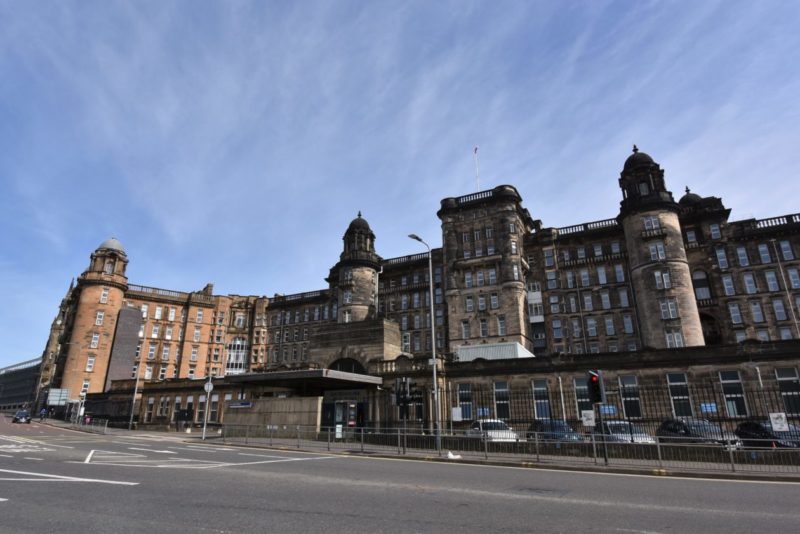Is COP26 Hiding Glasgow’s Bigger Problems?
By Lewis Douglas
Glasgow. A city that is unique in itself. Always welcoming and always gallus. The Dear Green Place. You have probably been to Glasgow now and then, seeing its many attractions – including the Armadillo, Finnieston Crane or George Square. COP26 is an opportunity for the world to see what Glasgow is like in its best light. But Glasgow does have serious problems that need addressing, and so the question remains, is COP26 hiding Glasgow’s bigger problems?
Poverty and Flooding
Glasgow is a city divided. Both rich and poor live there. Almost half (47%) of Glasgow’s residents, 292,000 people, reside in the 20% of most deprived (poor) areas in Scotland ¹. If you travel five minutes in Glasgow, you come across grand tenement flats and then really rundown areas. This has been the way for many, many years. Some of these problems go all the way back to after the Second World War, when Glasgow’s council moved lots of people to new housing estates and high-rises that became run down and were left to fall apart.
The poor people of Glasgow now also face a new, serious threat. This threat comes in the form of flooding. It is expected that around 170,000 people in Glasgow, 30% of the whole population, will be at risk of flooding by the 2080s³. Glasgow is addressing this problem head-on with a project to prevent East End flooding taking place in the near future. ⁴ Over the past few decades, more sustainable housing has been built by the council and housing associations to help lift people out of poverty, whilst also tackling the problems of climate change. Climate change, just like in the rest of the world, will affect those with the least, the worst.
Recycling And Littering
All of us have experienced littering at some point. You may have had lessons on recycling, and the damage littering does to the world. You can also view an article on littering here.
The fact is, it is a major problem, especially in some parts of Scotland. COP26 gives a chance for many to see how littering affects us, especially for the younger generation. Glasgow also spruced up the environment in the lead up to COP26, showing us how a cleaner Glasgow can look ⁵. Glasgow, like many other cities, have had real issues with picking up bins and looking after rubbish during the pandemic as many people had to stay at home and the bin collection service was really stretched.
Many have also reported that those going to COP26 have littered their Covid tests and mask around the city ⁶. If these are the people trusted to deal with the climate change crisis, then how come they are littering in an area already struggling with a littering problem?. Do they not realise the damage they can do to our lovely city?
Bin strikes are also a serious problem in Glasgow, with the GMB union rejecting the council’s offer of a pay rise ⁷. With bin strikes and other issues continuing, this could complicate plans for Glasgow to achieve carbon neutrality by 2030 ⁸. Nevertheless, Glasgow City Council recently announced their hopes that Glasgow would become a zero-waste city. In 2019, over 255,000 tonnes (lots and lots and lots) of rubbish was thrown away by residents in Glasgow – and less than 25% was recycled. Glasgow plan to treat rubbish as something valuable that shouldn’t just be thrown away.
Transport
The subway network is well known in Glasgow. Its circular route goes right underneath the city centre and west end, but it has faced criticism during the COP26 event in Glasgow.
For one, many politicians and important figures were given free travel passes by the government, not something the public usually has access to. ⁹. In addition, the third generation of trains for the subway were shown in 2016, but are still not in service ¹⁰. If it is taking so long for trains on our subway network to be introduced, who knows if we’ll meet our target for carbon neutrality? Public transport is incredibly important for helping cities become net zero. It helps people to stop using their cars to get around – and instead use buses, trains, trams and subways.
To get a better view of why transport needs to be updated, CEN went to a protest around the bus transport in Glasgow, and we had an interview with protestor Miles Grant. There is a more detailed article here, but in summary he openly expressed that Glasgow needs tramlines to return, free bus travel for all and the re-nationalising of buses. He believes the monopoly of bus companies is costing the public and government more than owning the buses would.

Is COP26 Covering Bigger Problems?
No. In fact, it could be addressing these issues within Glasgow with the increased amount of politicians in the city centre and activity from protestors and other pressure groups. They will see these problems and hopefully address them.
The public will also have to offer their hand in making sure to recycle effectively, avoid littering and consume products that do not contribute large amounts of pollution. Glasgow is a city on the horizon of crisis due to climate change, but if we all take action, we can hopefully avoid most of the negatives.
Sources
https://en.wikipedia.org/wiki/Glasgow_Royal_Infirmary#/media/File:Glasgow._Glasgow_Royal_Infirmary.jpg
https://www.understandingglasgow.com/indicators/poverty/overview
https://abouthouse.co.uk/most-expensive-houses-in-glasgow
https://www.bloomberg.com/news/articles/2021-10-16/glasgow-site-of-cop26-faces-flood-risk-as-planet-warms
https://www.glasgowlive.co.uk/news/glasgow-news/glasgow-east-end-flood-prevention-21228410
https://blogs.glowscotland.org.uk/sl/climateemergencynewsroom/2021/11/04/what-does-littering-do-to-the-environment/
https://www.sundaypost.com/fp/cop-cleanup/
https://www.glasgowlive.co.uk/news/glasgow-residents-fume-cop26-guests-22049323
https://www.bbc.co.uk/news/uk-scotland-59213964
https://www.glasgow.gov.uk/CHttpHandler.ashx?id=50623&p=0
https://www.transport.gov.scot/cop26/cop26-transport-plan/
https://rail.nridigital.com/future_rail_aug19/in_pictures_glasgow_subway_shows_off_its_new_driverless_trains



